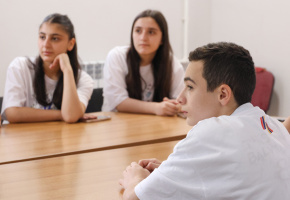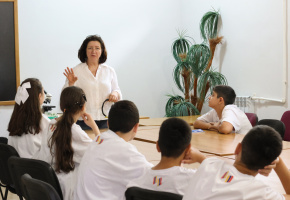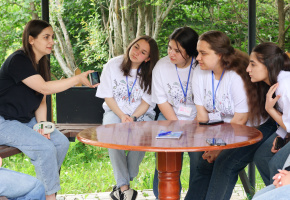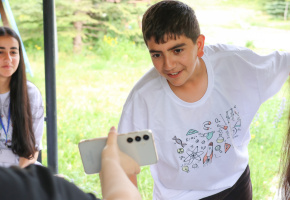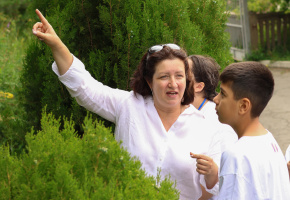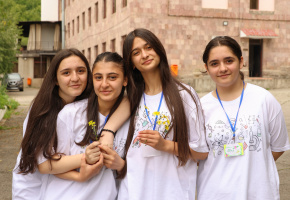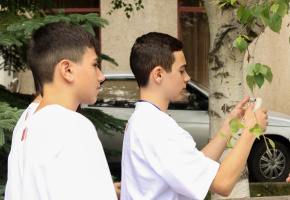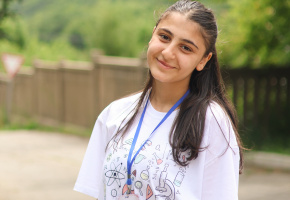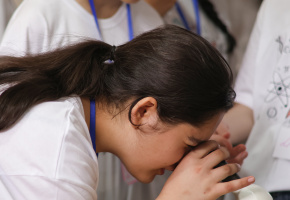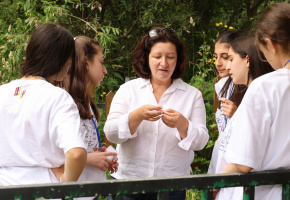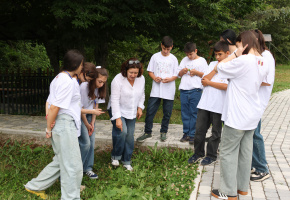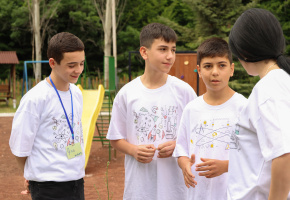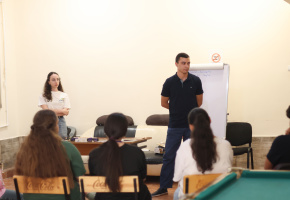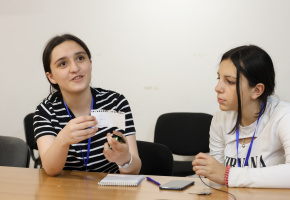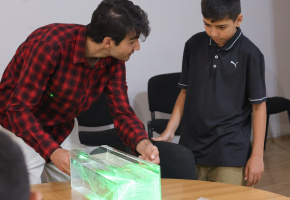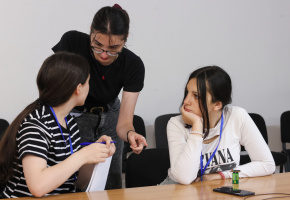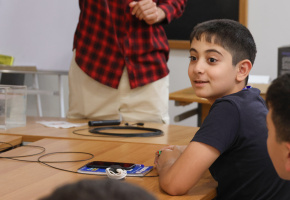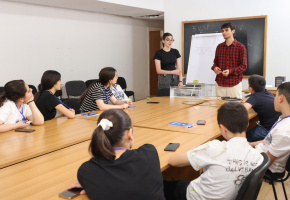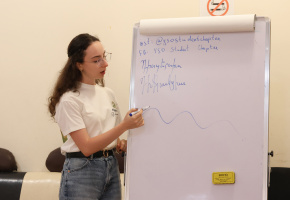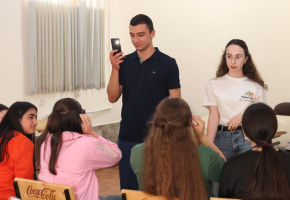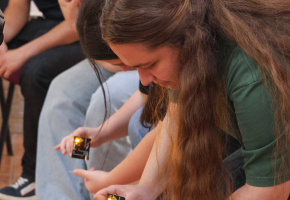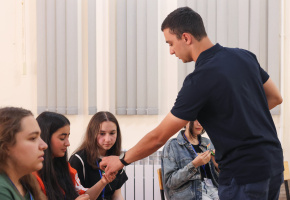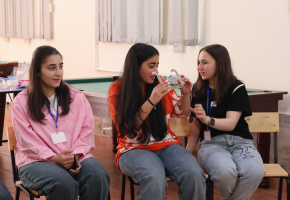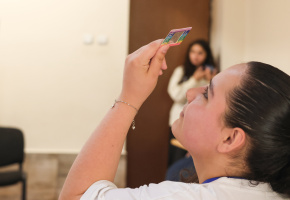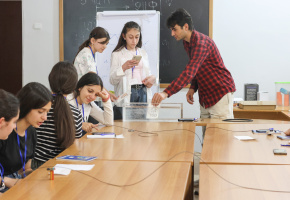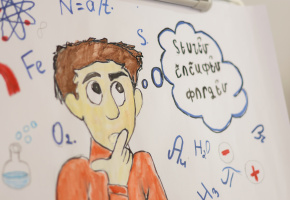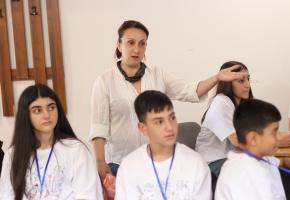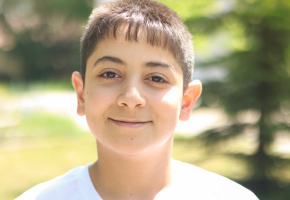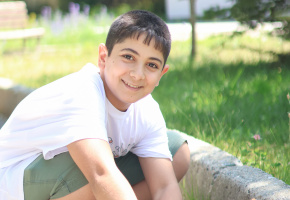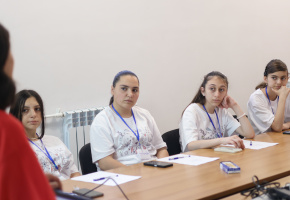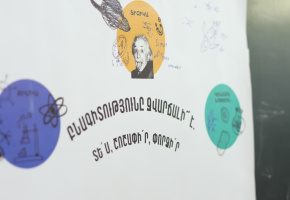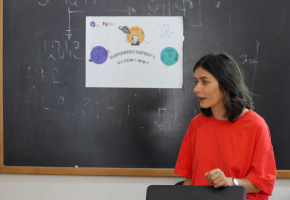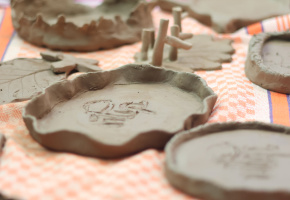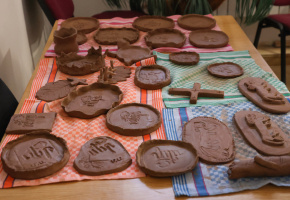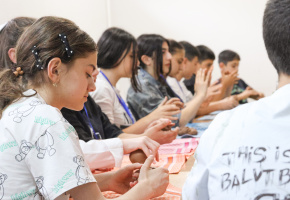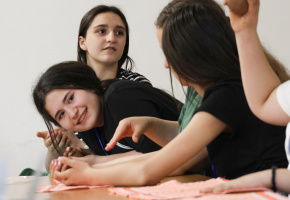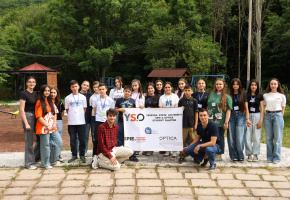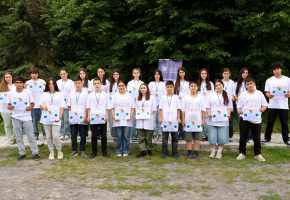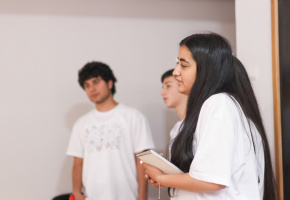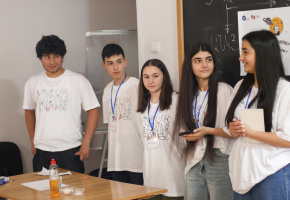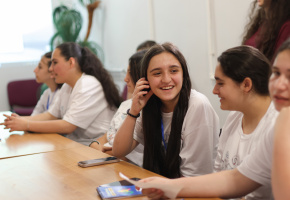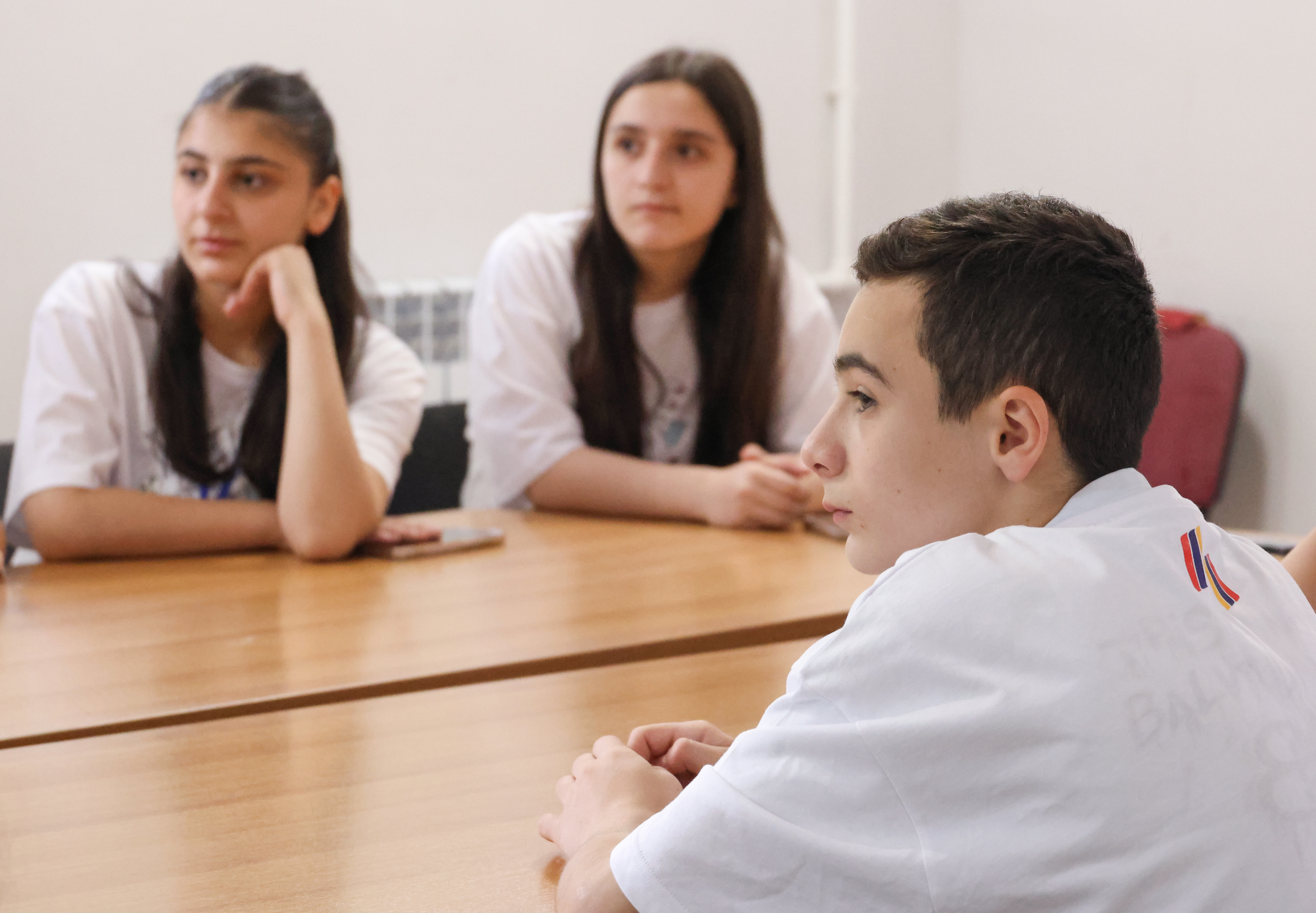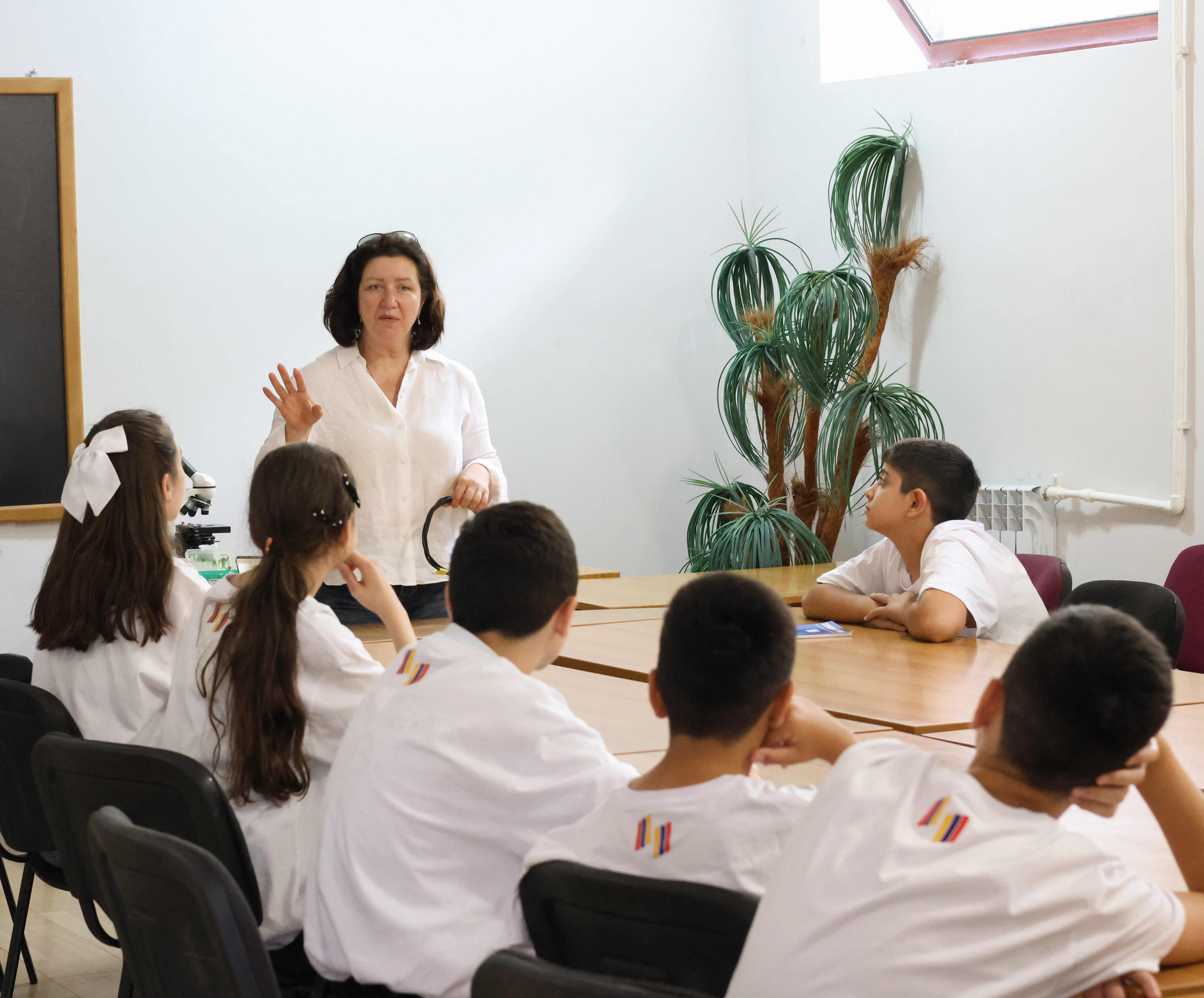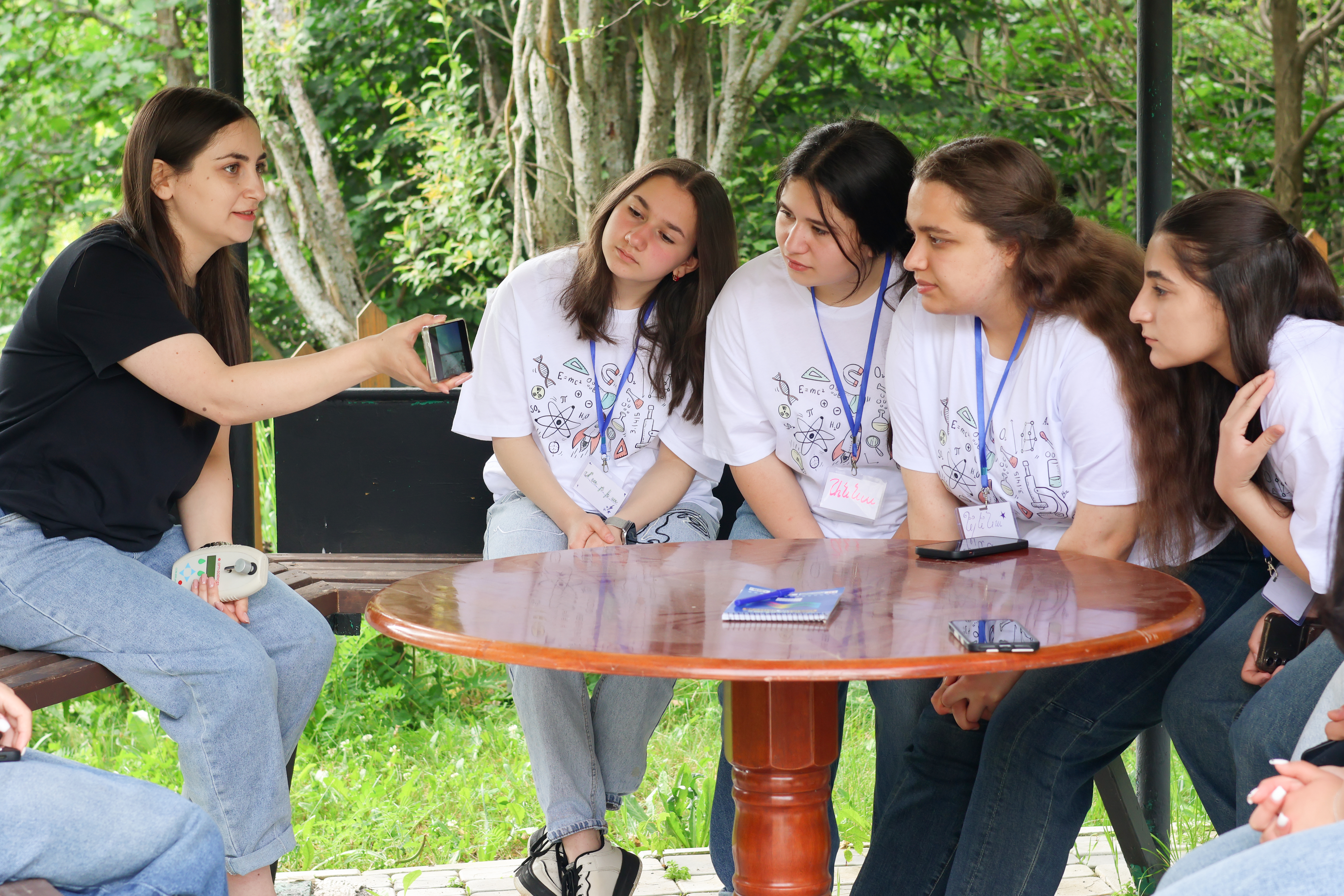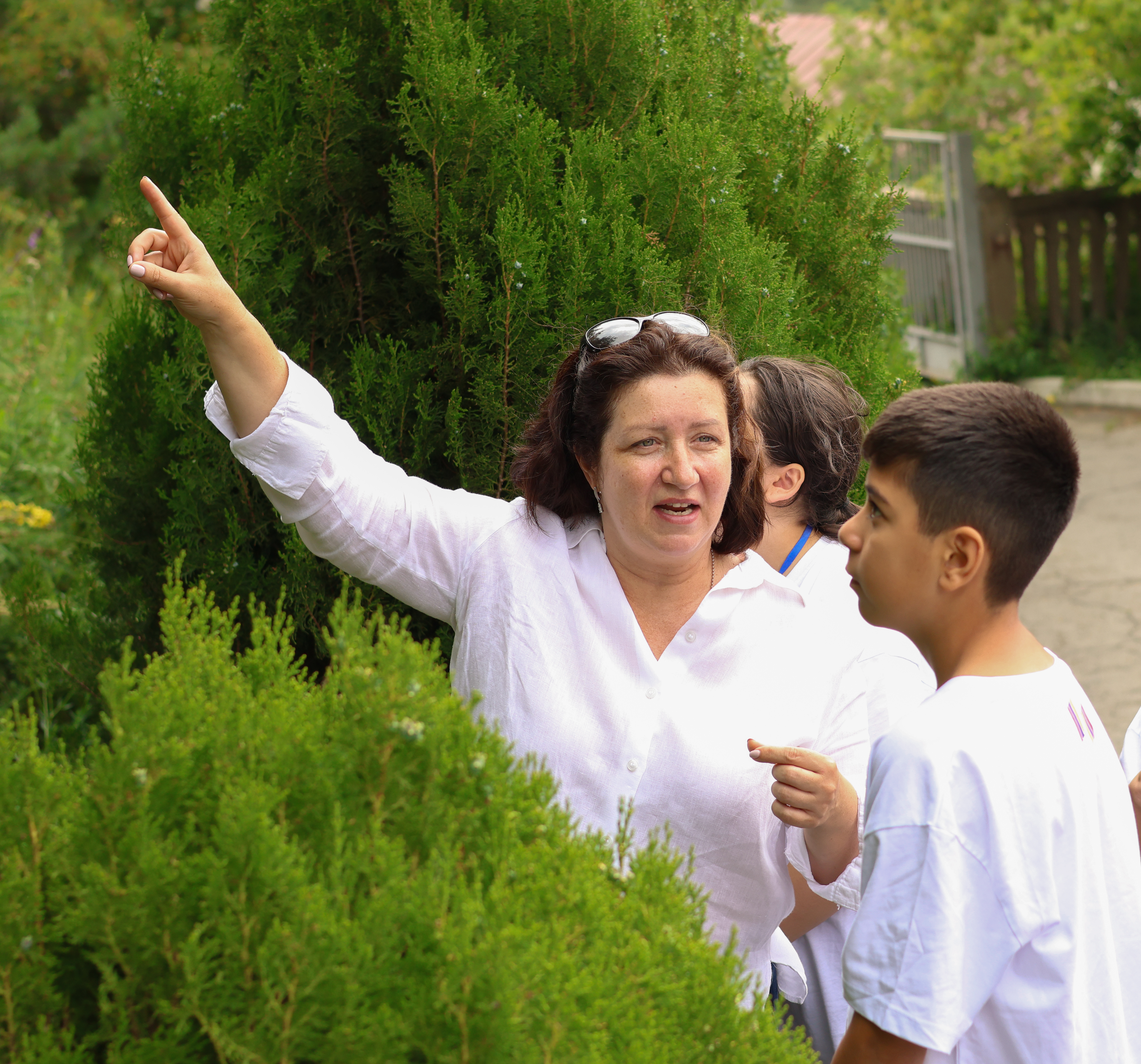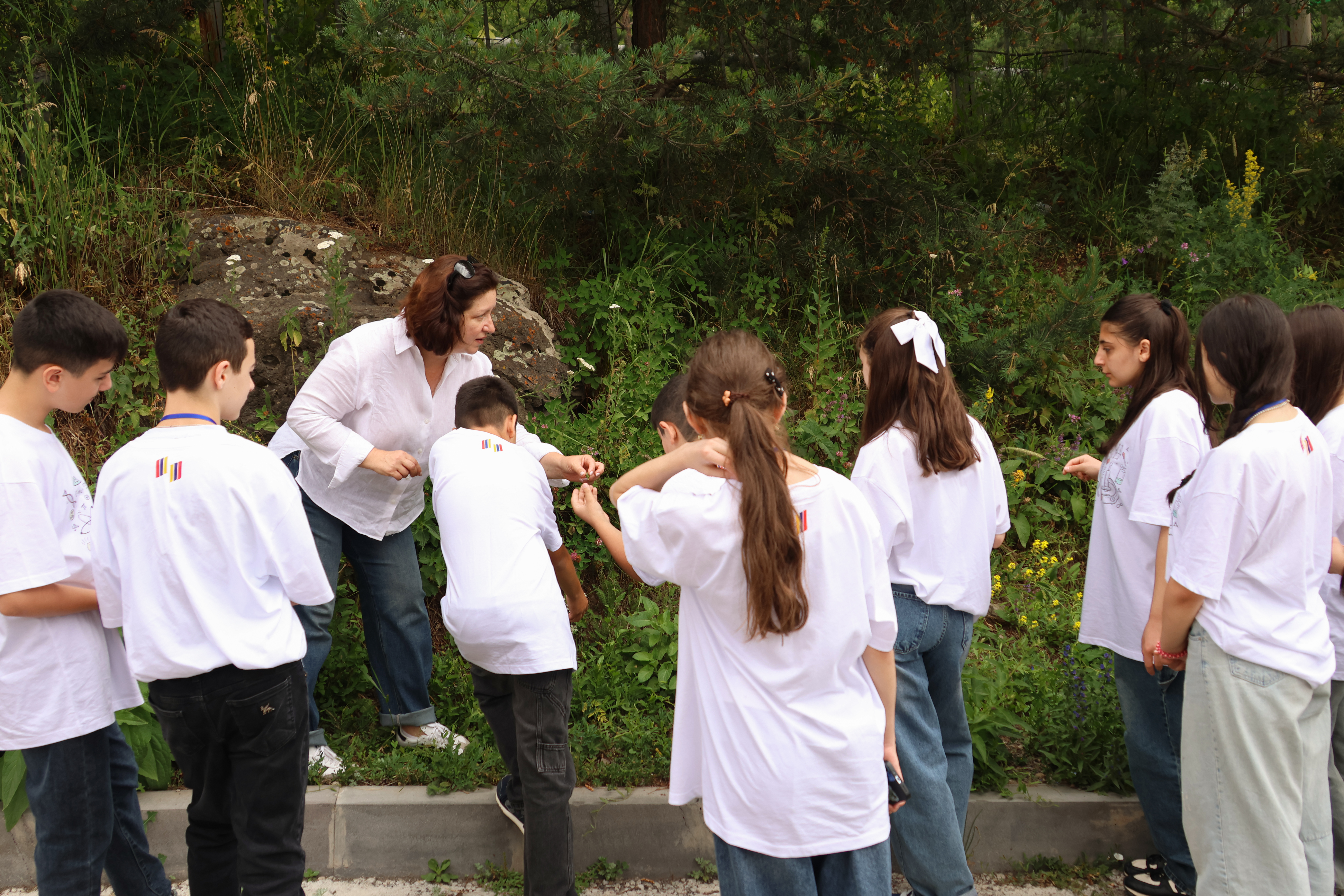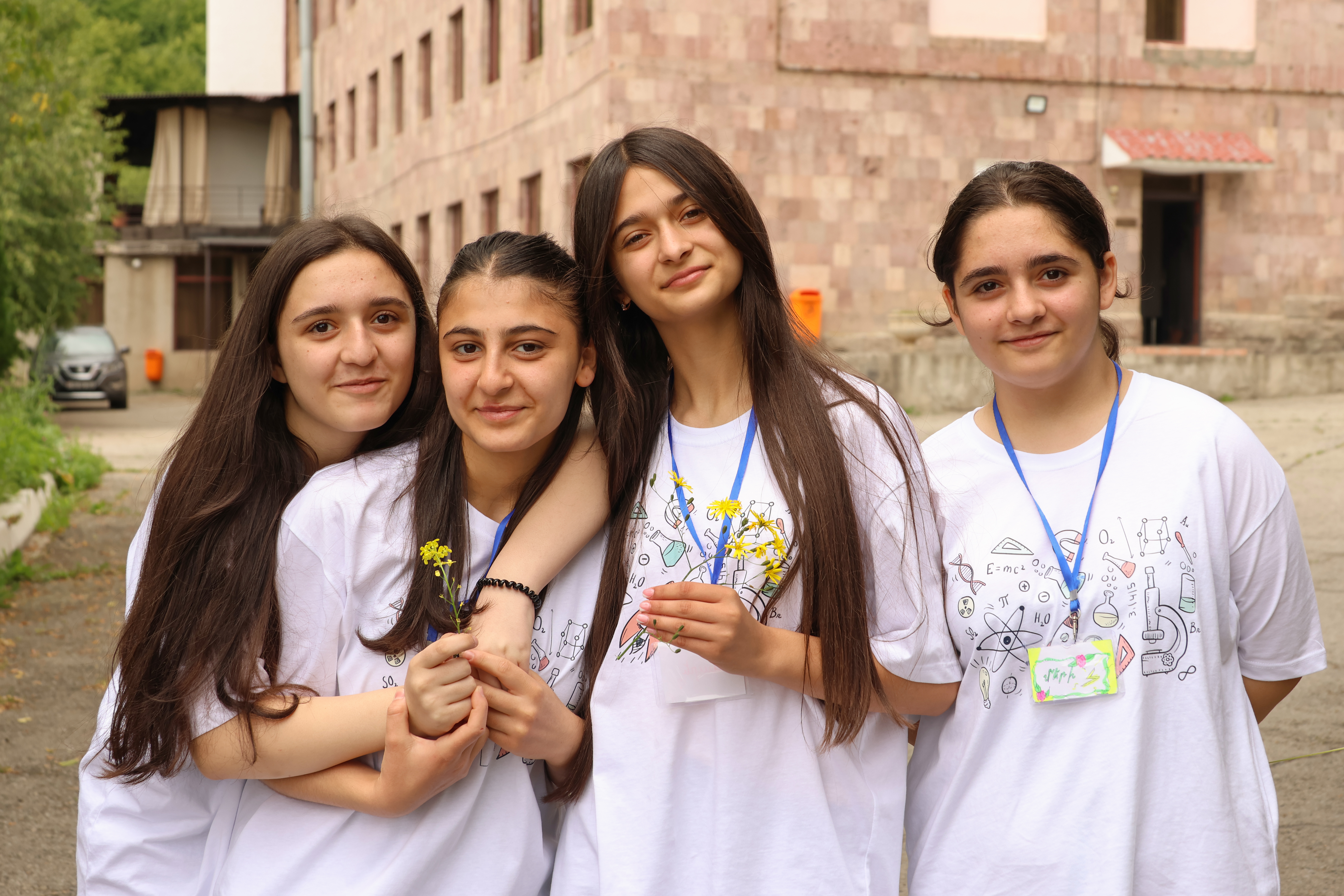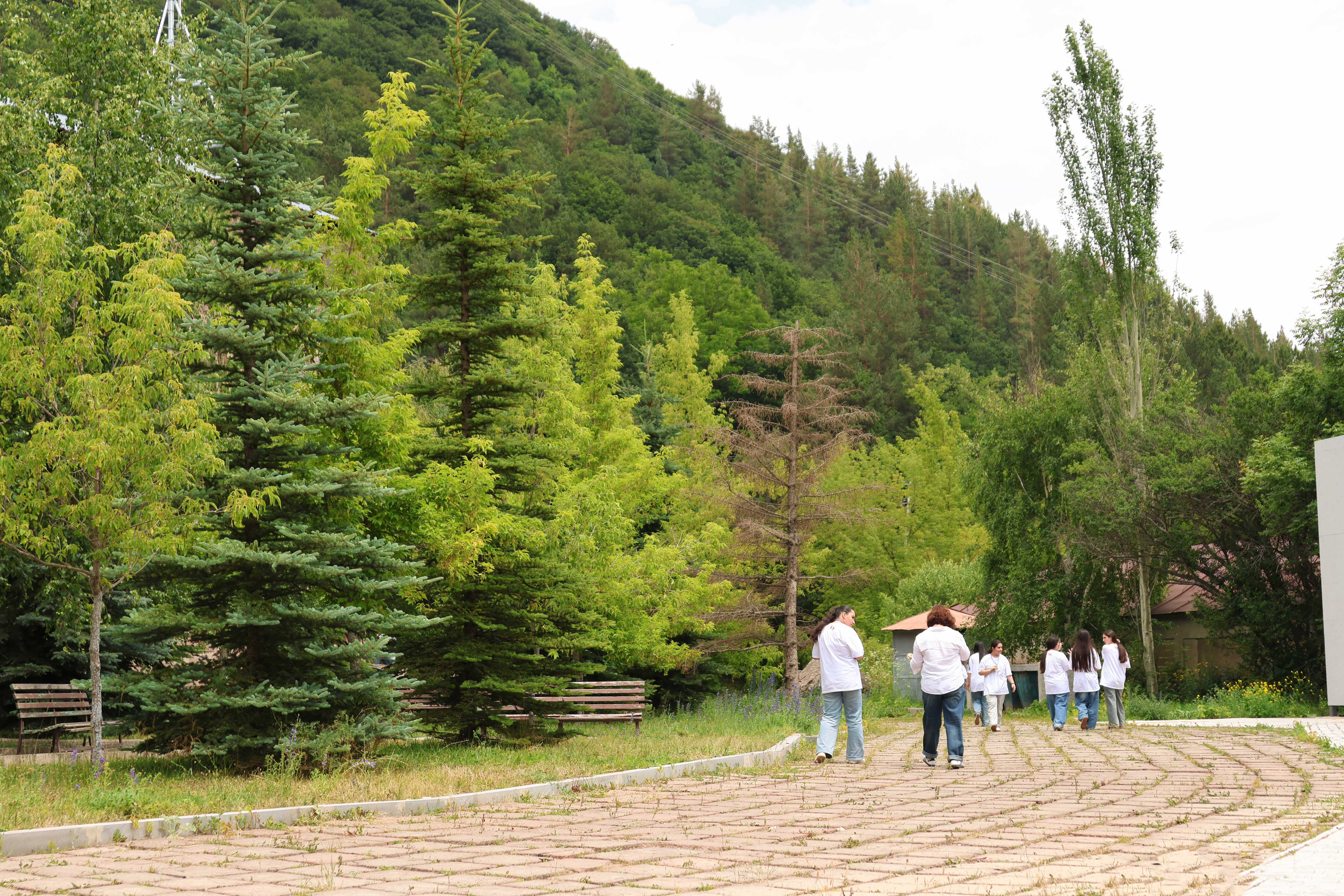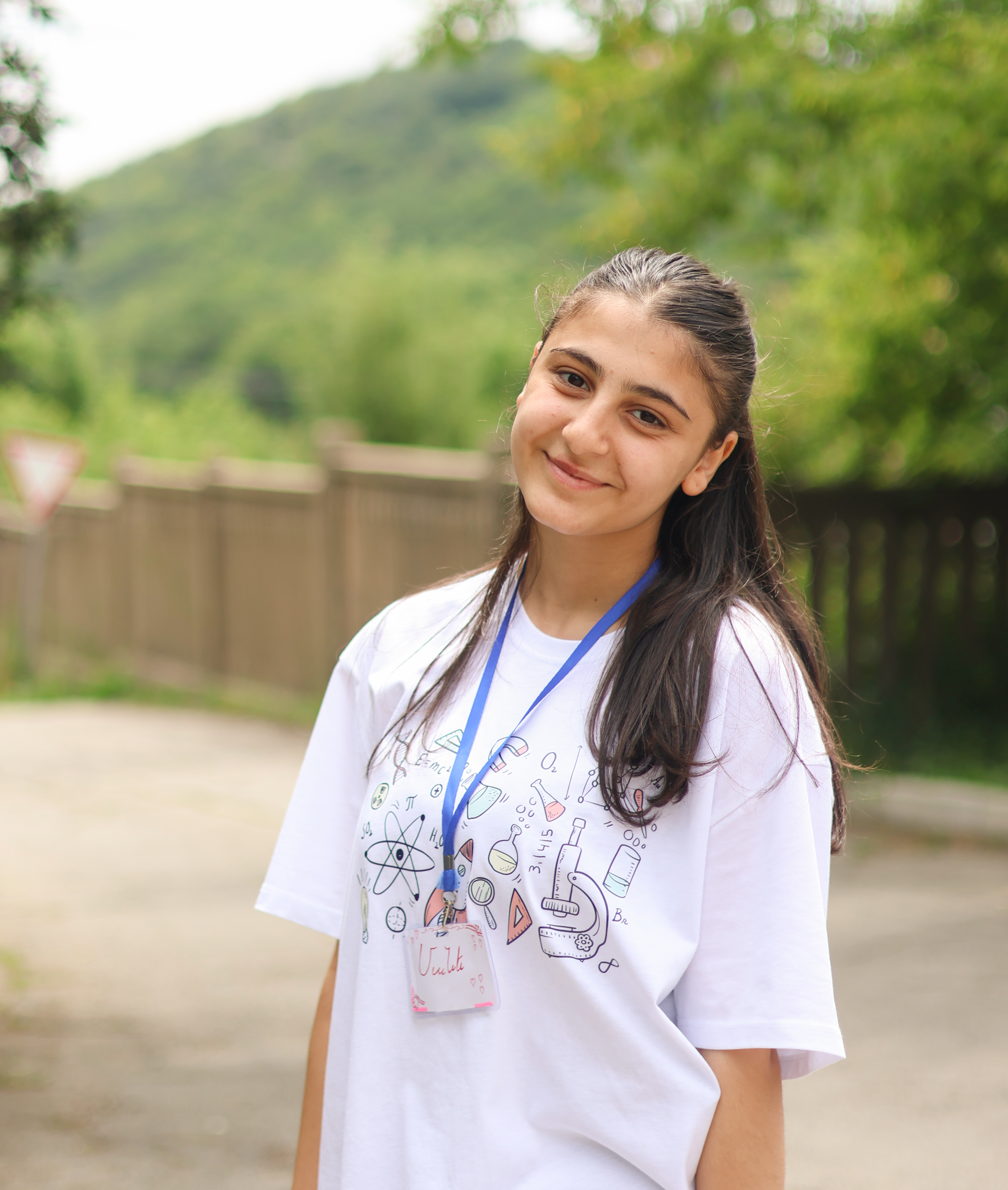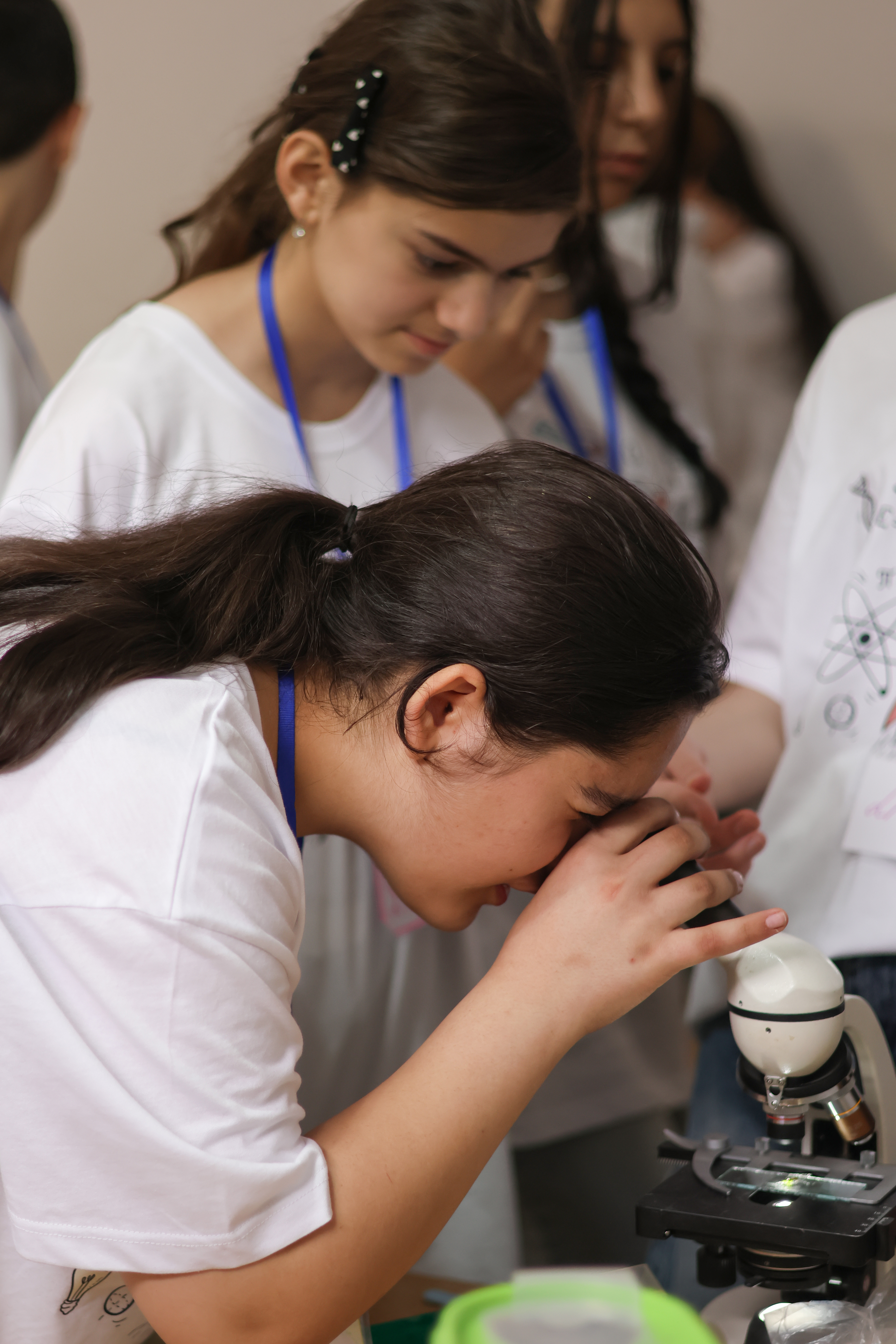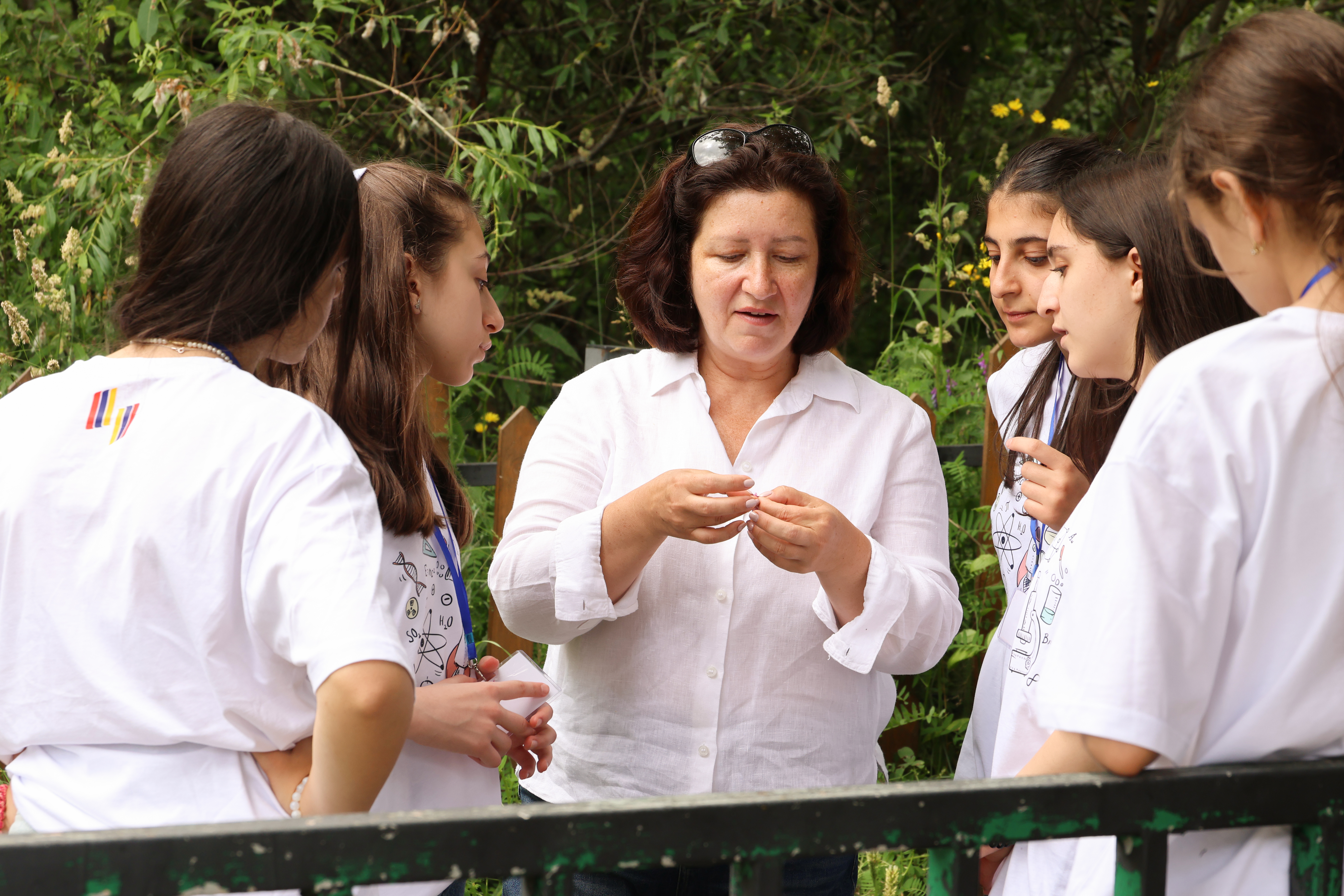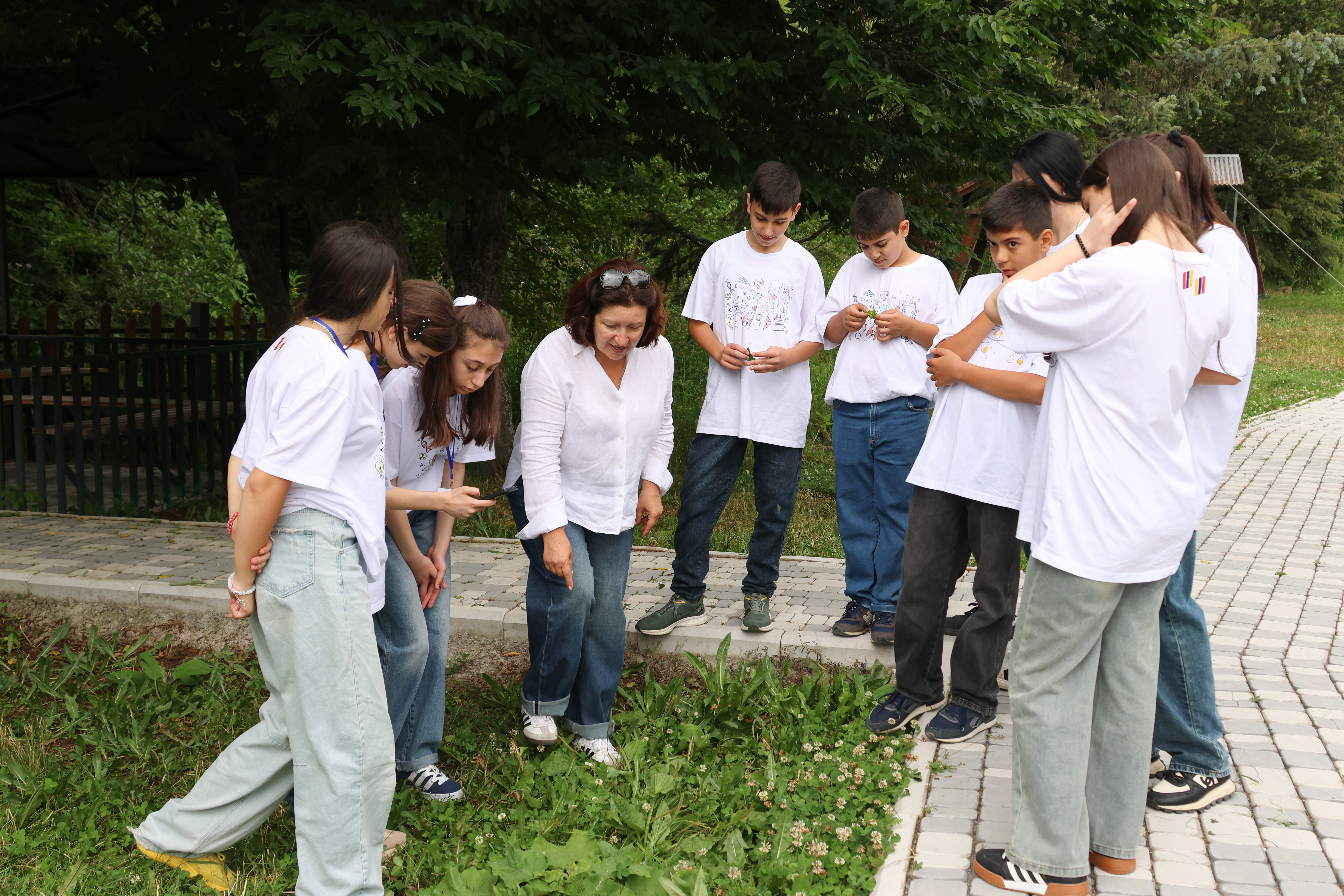July 14, 2025 | 13:23
Science
Education
Lifelong learning
Knowledge, experience, and friendship: Science camp that once again united students
Through a joint initiative of YSU Center for Continuing Education and Hayastan All-Armenian Fund, the summer science camp titled "Science is Fun! See! Touch! Try!" was successfully held once again. This year, the primary objective of the camp was to support schoolchildren displaced from Artsakh and now settled in various communities of Armenia—not only by providing them with new knowledge, but also by reigniting their curiosity and interest in science.
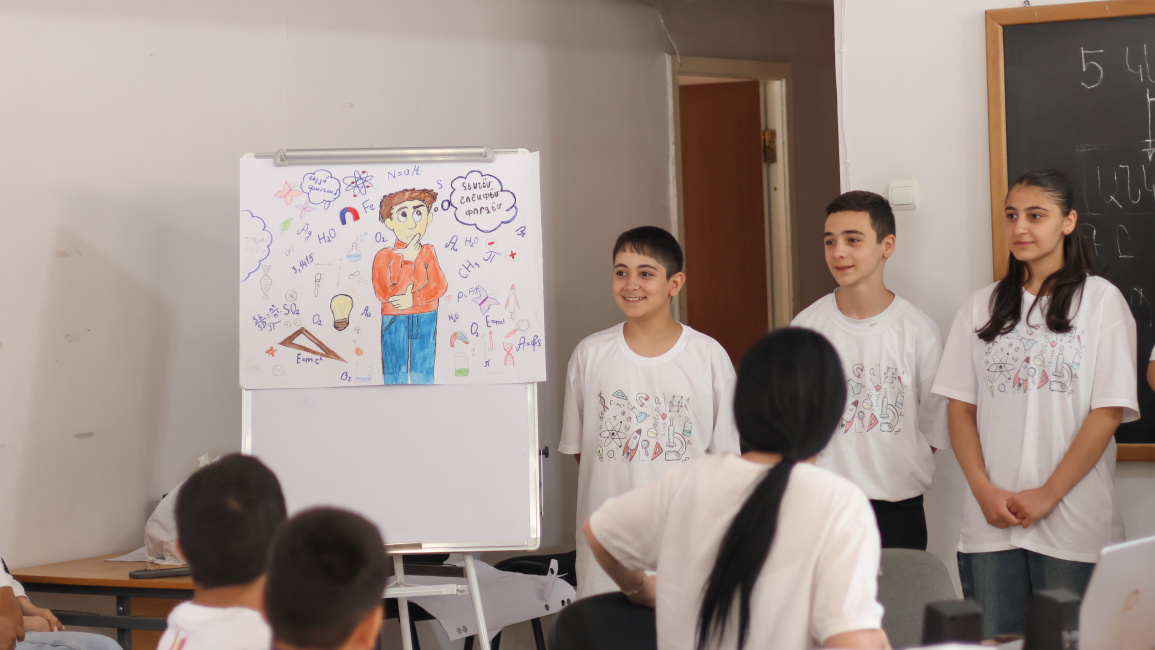
As part of the camp, children engaged in hands-on scientific activities—conducting experiments and practical tasks that helped them actively explore scientific concepts through seeing, touching, and trying. According to Armine Karapetyan, who works in YSU Center for Continuing Education and is the camp organizer, this is a place where science is not merely theoretical—it becomes practical, tangible, and inspirational.
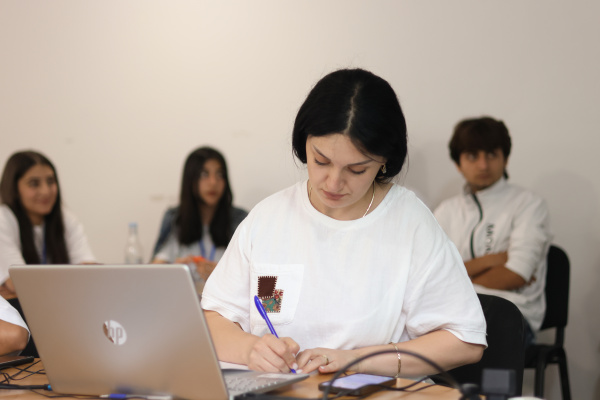
"The camp, held at YSU’s Tsaghkadzor Training and Production Base, was initially tailored for schoolchildren aged 13 to 16 who were forcibly displaced from Artsakh. However, upon the suggestion of the sponsoring foundation, students from other regions of Armenia were also included in each group. In total, around 65 students participated," noted Armine Karapetyan.
Each day of the camp was designed to be dynamic and enriching, constantly keeping the children in an environment of creativity and learning.
"The mornings began with physical activity and warm-up exercises, followed by group discussions summarizing the previous day’s experiences—what the students enjoyed, what they would change, or what they would like to add. Thematic sessions in Chemistry, Physics, and Biology followed, conducted through experimental methods. For example, in Organic Chemistry and Inorganic Chemistry, students actively participated in real laboratory experiments under safe and supervised conditions. They not only observed chemical reactions and transformations but also carried them out personally, monitoring and analyzing the outcomes," added the camp organizer.
Beyond the scientific focus, the camp also included creative workshops. Gayane Stepanyan, the instructor for pottery, explained that working with clay often serves as a psychological therapy. During the pottery sessions, students crafted various objects with their own hands.
"Clay has anti-stress properties, especially for children who struggle to express their emotions. The process becomes a tool for self-expression," emphasized Gayane Stepanyan.
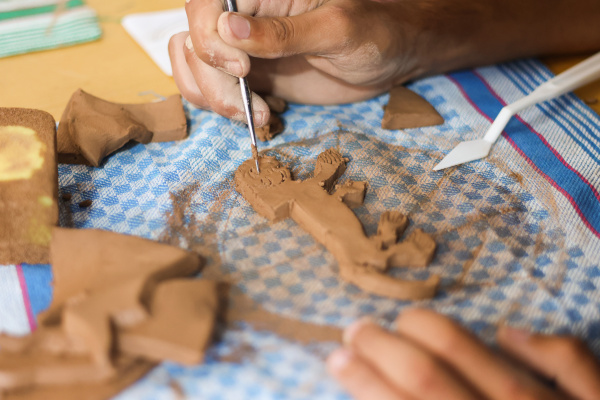
Other workshops included fashion design, paper recycling, sewing, and filmmaking. The filmmaking course was especially liked by the children. They learned how to film properly and create video stories. In the end, they made group videos and poster presentations, which they presented at the camp’s closing.
The summer camp also featured cultural excursions. Participants visited the Kecharis Monastery Complex, the Orbeli Brothers' House-Museum, and various historical sites in Tsaghkadzor. These visits allowed the children to explore their cultural and historical heritage.
YSU student volunteers significantly contributed to organizing the camp, managing the children’s evening leisure activities and fostering strong interpersonal relationships among participants.
Makrita Avjyan, Head of the "Science is Fun! See! Touch! Try!" program, emphasized: "The idea proposed by Lusine Kharatyan, Director of YSU Center for Continuing Education, to organize science workshops for 13–16-year-olds, was successfully brought to life. The primary goal was to ensure that, after the academic year and during the summer break, students would not lose interest in learning, and would instead be brought together around an educational initiative, but outside of the typical classroom setting and without the usual academic pressures. To achieve this, we considered YSU laboratory resources, particularly the recently renovated and well-equipped laboratories."
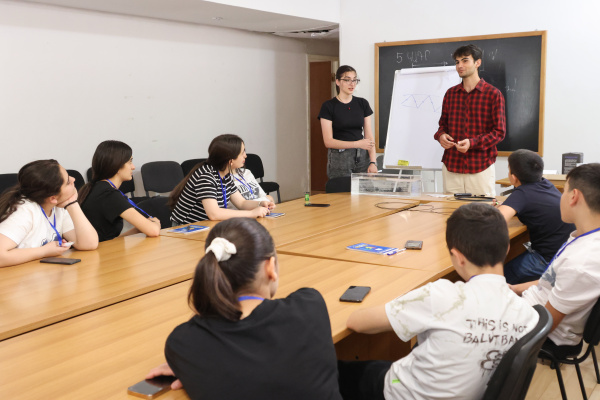
According to Makrita Avjyan, the program was initially called a "workshop" because the main idea was to take children out of the typical school environment during their vacation. There were no traditional classroom lessons, homework, or grades. Instead, the goal was for them to see science as something interesting and practical—something they could see, touch, and try.
Under this initial model, students attended four-hour sessions at YSU laboratories each day and returned home afterward. M. Avjyan noted that while the first year of the program was a success, the following year brought significant changes. The large-scale displacement of families from Artsakh resulted in many schoolchildren being spread across Armenia’s provinces, making it impractical to continue hosting the program at the university. As a result, the format was revised into a full-day, five-day camp held at one of YSU's training and production centers.
"This is how the initiative took shape—first in Byurakan last year, and this year in Tsaghkadzor. The camp combined science, cultural enrichment, teamwork, and social interactions into a comprehensive educational environment," M. Avjyan added.
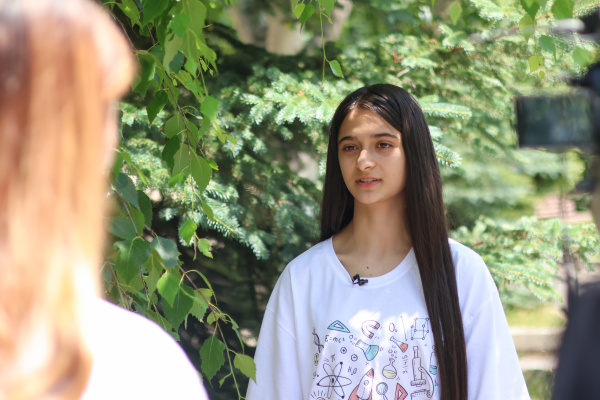
Nare Hayrapetyan, a 9th-grade student at Hovtashat Secondary School in Ararat Province and a camp participant, shared that on the first day, when the students were told they had to hand in their phones, everyone was confused—even upset—unable to imagine life without social media.
"But just a few hours later, we started interacting, laughing, playing, and joining the games and sessions. We realized that there is life beyond the phone," Nare said.
She recalled the pottery classes, her new friends, and the camp’s positive atmosphere with particular enthusiasm, adding that she hopes such camps will be held again in the future.
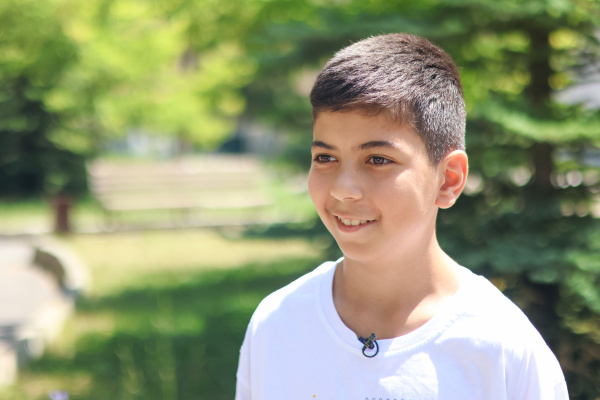
Slava Stepanyan, an 8th-grade student at School No. 7 after V. Mayakovsky in Yerevan, admitted that he wasn’t very excited about the idea of joining the camp at first. He had expected another school-like experience filled with lessons and rigidity. But from the first day, his expectations were overturned.
"Once we arrived, I saw how different everything was. Everything was engaging—I wanted to be part of it all. I gained knowledge that I’m sure will be useful in the future. But most importantly, I made new friends, and I plan to keep in touch with them even after the camp," Slava added.
